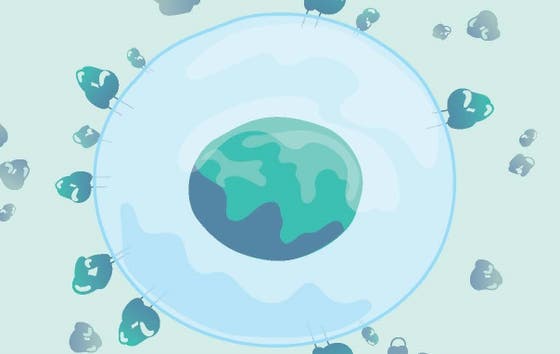Apr 13: New strategies and improved designs of anti-cancer cell therapy

Engineered T cells offer great promise as an anti-cancer treatment. However, efficacy and safety are still suboptimal and treatment is enherently expensive. Therefore, researchers at UMC Utrecht have engaged in several strategies to improve this type of cell therapy. Some of the results have now been presented in the PhD work of Eline van Diest who defended her thesis on April 13, 2023.
Despite all the progress that has been made during the last decades towards the improvement of cancer treatment, for many patients the disease remains incurable. Moreover, the standard treatments such as irradiation, chemotherapy and surgery can cause significant discomfort and unwanted side effects for patients. Currently, there are already several potential game-changing cancer immunotherapies based on engineered T cells implemented in clinical practice. In addition, there are many more in different stages of development. While these will undoubtedly change treatment outcome for many cancer patients, unfortunately probably only a minor fraction of all cancer patients will benefit from these treatments. Therefore, further improvement of currently used therapies, development of novel concepts as well as efforts to combine different treatments to increase overall efficacy is needed.
Improved immunotherapy
In her thesis, PhD candidate Eline van Diest (Center for Translational Immunology, UMC Utrecht) and colleagues aimed to advance immunotherapeutic strategies based on T cell receptor (TCR) engineered T cells using αβ- or γδTCRs for tumor cell recognition. They developed a novel concept to purify and deplete αβTCR engineered T cells, a strategy that may contribute to improving the quality and safety of ex vivo manufactured αβTCR cell therapies. Furthermore, they improved the in vitro and in vivo potency of T cells engineered with a γδTCR (TEG), by the introduction of an additional chimeric co-stimulation receptor. This will hopefully add to clinical efficacy of this cell product in the future, a strategy that might also be applicable to other types of cell therapy. Lastly, the investigators introduced a novel concept to the fast-growing field of γδTCR mediated immunotherapy, and explored strategies to further improve this novel treatment modality. With the γδTCR-αCD3 bispecific T cell engager they provide an interesting alternative strategy to translate the promise of γδTCRs into anti-cancer therapy, with the potential to be broadly applicable as an off-the-shelf therapy.
PhD defense
Eline van Diest (1993, Maastricht) defended her PhD thesis on April 13, 2023 at Utrecht University. The title of her thesis was “Immunotherapy with T cells: new strategies and improved designs.” Supervisor was prof. dr. Jürgen Kuball (Center for Translational Immunology and Department of hematology, UMC Utrecht). Co-supervisors were dr. Dennis Beringer and dr. Zsolt Sebestyén (both Center for Translational Immunology, UMC Utrecht). Eline works as cellular immunology scientist at Nanocell Therapeutics (Utrecht), where she continuous to contribute to the development of novel immunotherapeutics against cancer.
